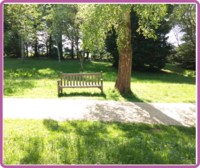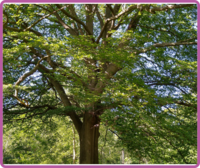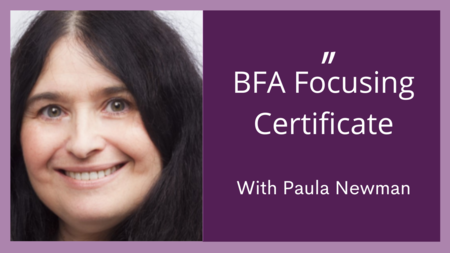Introducing Focusing to a Supervision Group
I hope that you will enjoy reading about my project 'Introducing Focusing to a Supervision Group'. It took place over one academic year at the college counselling service which employed me as group supervisor.
Introducing Focusing to a Supervision Group. Part 1, Preparation
Introducing Focusing to a Supervision Group. Part 2, First Term
Introducing Focusing to a Supervision Group. Part 3, Second Term
Introducing Focusing to a Supervision Group. Part 4, Third Term
.
Introducing Focusing to a Supervision Group. Part 1, Preparation
I am sharing my project with the kind permission of the three supervisees who participated. I will call them Robyn, Julie and Rebecca.
The project formed part of my training as a Focusing teacher and took place over one academic year at the college counselling service which employed me as group supervisor. I suggested my idea to the group hoping that members would find Focusing personally beneficial and that it would enhance our explorations of their counselling work. This was our second year together. We met for two hours every fortnight, during the academic term.
My project is written as I experienced it in the moment. As it is rather long I have divided it into four parts.
Preparation
I focus upon whether to take a structured or less formal approach. The first would involve creating a structure for bringing Focusing to the group and having some objective way of measuring the results.
I close my eyes which helps me to be more in touch with my inner experiencing. After a while I become aware of sensations in my body which I associate with a structured approach.
Something in my throat feels restricted, sort of tight, I keep swallowing. I notice a pulsing pressure at the back of my forehead, a type of dull pain, throbbing.
Another possibility is to include Focusing within supervision as and when I sense that it will be helpful, allowing a process to unfold. I could support Focusing with explanations, discussion and written material. Rather than asking for feedback in a formal manner such as questionnaires, I could ask supervisees for their responses as we go along.
I get a sense of how this feels in my body. I take deep, deep breaths, filling my lungs with oxygen,there is a feeling of spaciousness and freedom. The second way involves trusting my intuition and my sense of what is helpful whilst also trusting that something worthwhile will emerge. This feels risky with a nervous excitement, fluttering butterflies in my stomach.
I take into account the restriction associated with working in a structured way and the freedom of trusting and seeing what emerges. I acknowledge the butterflies and the sense of riskiness associated with a lack of structure. I notice where my energy lies and decide to take the second path.
Rogers’ words (1995) speak to the part of me that enjoys a sense of freedom when I am able to trust myself and my own resources.
Slowly I learned to trust the feelings, the ideas, the purposes that continually emerge in me. It was not an easy learning but a most valuable and continuing one. I found myself becoming much freer, more real, more deeply understanding. Rogers, C.R, (1995) A Way of Being Boston: Houghton Mifflin p.35
In the group we talk about the project and discuss confidentiality. Each supervisee chooses a pseudonym for me to use in my written work - Julie, Rebecca and Robyn.
Being Self-in-Presence
On my journey home I feel panicky, my breathing quickens and my chest tightens I keep saying to myself ‘I don’t know what I’m doing’.
This is not my whole experience, a more confident part of me is enjoying the adventure and not knowing makes it even more fascinating. However right now I am merging with the panicky part, I am feeling overwhelmed and seeing my project from its panicky perspective.
I say to myself ‘I am sensing something in me that is panicking’. This helps me to be in relationship with the panicky part. The phrase ‘Something in me’ reminds me that there is also a confident part and that I can hear the panicky one without merging with it.
I acknowledge the panicky part, it feels heard and relaxes. My breathing becomes more even as I calm down.
Being Self-in-Presence involves seeing the whole picture and paying attention to whatever is going on within me, a panicky part a confident part and so on. All parts are welcome, there is space for everything.
When I am Self-in-Presence, extending attitudes of empathy, acceptance and gentle curiosity towards other people is a natural continuation.
When our Self is in a state of Presence, we are capable of acting with flow, sensing the whole situation (given the limits of what we can be aware of), connecting with here-and-now experience, and interacting freely with our environment. We call this Self-in-Presence. (2008)Cornell, AW &, McGavin, B, (2008) Treaure Maps to the Soul. The Focusing Folio, 21 (1)
Introducing Focusing to a Supervision Group. Part 2, First Term
We start each session with an attunement to bring our awareness inwards.
The attunement involves getting a sense of our whole self, paying attention to our outer body, arms, legs etc and our inner body throat, chest and stomach, noticing and welcoming any emotions. Being aware of supports such as the solid ground beneath us.
Supervisees' Responses to Attunements
Rebecca is aware of sensations in various parts of her body and notices a difference in how the back and front of her body feel. She says 'I’m noticing the tiredness, really feeling the tiredness.'
Robyn 'It allows me to arrive properly. This is the first time I’ve been silent and really noticed what is going on within me.'
Julie 'It’s very hard to be in touch with my body – I’m not used to it.'
A supervisee Focuses with the Felt Sense
I explain about the felt-sense as described by Eugene Gendlin the founder of Focusing
A felt sense is not a mental experience but a physical one. Physical. A bodily awareness of a situation or person or event. An internal aura that encompasses everything you feel and know about a given subject at a given time—encompasses it and communicates it to you all at once, rather than detail by detail. Gendlin, ET (2005) Focusing 25th Ed. London: Rider.
Focusing is the name that Gendlin gives to the process of paying attention to the felt sense and describing it. As we describe something it becomes more real and substantial. We might discover something new which had not been clear or available to us before.
Rebecca has a vague sense of ‘something is going on’ in a client relationship. I suggest that she might like to just sit with it for a bit, noticing what comes as she keeps it company. Rebecca becomes aware of an all over tiredness and feeling sick. We acknowledge these sensations and wait.
Rebecca continues describing the felt sense. ‘It feels like a dance with me trying to catch my client and her slipping away’. I reflect what Rebecca has said and she is quiet for a while. Then she remembers dropping off to sleep for a few moments after the session. She continues ‘It felt like I was chasing my client and there was a voice saying ‘I want to counsel my client and she’s not letting me’. Rebecca identifies this as a ‘child’s voice’, a part of her which is coming into her relationship with the client. She acknowledges this part.
Providing the group with more information about Focusing
Afterwards I ask Rebecca about how Focusing on this issue has been for her ‘was that Focusing?’ she asks surprised. Rebecca’s remark and further group discussion indicates to me that it would be helpful to provide more explanation. Due to the two hour time limitation of our sessions I send an email to supervisees explaining more about Attunements and starting Focusing sessions with a Lead In. I also introduce Ann Weiser Cornell and Barbara McGavin's ideas about being Self-in-Presence (a state of being that we can cultivate, which involves holding an open, friendly, gently curious and accepting attitude towards everything that emerges within us) I tell supervisees that if they choose we can discuss these ideas during the next session.
When we meet, we talk about experiencing Self-in-Presence.
Rebecca wonders whether being self-in presence lessens the intensity of an experience, reducing the depth of explorations.
Julie and Robyn feel that spaciousness prevents them from becoming overwhelmed by an experience, making it safer to explore at a deep level.
Throughout the year I provide information based upon supervisee’s questions, group discussions and my sense of what is helpful. I explain that there is no obligation to read the information and that I am also ready to discuss anything of interest.
Feedback
As we approach the end of term I invite supervisees to give me feedback, welcoming both written and verbal comments. The feedback falls into four areas: Relating Focusing to other approaches, attunements / leading in, balance in bringing Focusing to Supervision sessions
Relating Focusing to other approaches
Julie and Rebecca both find that there is something familiar about Focusing because of its association for them with other approaches.
Julie says ‘I really like the attunements, it is a similar experience to mindfulness’.
Rebecca writes 'I can only think of it in relation to the rest of my training both in Reichian body work and Gestalt and there seems to be elements of both in it.'
Attunements
All three supervisees find attunements helpful.
Robyn says ‘brought me somewhere and I could explore a bit more deeply’.
Connecting with their bodies
Robyn says ‘I’m aware of what I’m not feeling, like I’m looking for something’.
Julie says ‘I struggle to connect to an actual feeling’.
Rebecca writes I have found it easier to locate some feelings in my body than others - anxiety stands out for me as something I feel in a very physical way. Sometimes if I can't locate any feeling I go into my head and worry about it and then I can guarantee I won't find anything!’
Balance in bringing Focusing to Supervision sessions
Supervisees would all like more Focusing. Robyn talks about wanting more and also wanting to make sure that there is sufficient time for client work. She feels that she is ‘missing’ in not having more Focusing. Rebecca finds that Focusing facilitates supervisory enquiry. Julie says ‘I would like a bit more when talking about clients, exploring what I am feeling now’. Rebecca agrees and says ‘but don’t we do that anyway?’
My own process
Frequently there is a part of me that is unsure. Does each person feel heard and supported? Are they benefitting? Is this the best use of their supervision time? Nervously this part hangs back, wary of imposing my project on others, bearing in mind that the position of supervisor holds a degree of power and authority. So I say ‘hello’ to this part with its doubts and its hesitancy. I listen to what it is wanting and not wanting with acceptance and interested curiosity.
At the same time there is another part which has a more vibrant energy. I notice it wanting to push forward and I sense into a tight frustration deep in my chest. I acknowledge this part, making space for it too.
My supervisor and I both focus upon bringing more Focusing to the supervision group. There is a strong sensation in my arms, they want to stretch out as widely as possible and I am aware of an energy and excitement around embracing Focusing more fully within the group. My supervisor talks about ‘integration’ and we reflect upon integrating Focusing in a more complete and flowing way.
Introducing Focusing to a Supervision Group. Part 3, Second term
During the first term a structure has emerged. Following a lead in we share and reflect.Then we divide the remaining time between supervisees to explore their supervisory issues. Focusing is brought in as relevant. We then say our goodbyes.
Now I ask supervisees if they would like to try something different and less structured. With their agreement we have an attunement and then stay open to going wherever this takes us. After the attunement there is a long silence. I notice an inner anxious part ‘what if nothing happens?’ and a trusting part ‘something always happens’.
Eventually we are Focusing and responding to each other. I sense into the pain at the back of my head and the tension which I am experiencing. I share this with the group. There are some reflections from supervisees and then Julie expresses her concern for me having to supervise with a headache. I am moved by Julie’s caring and I also feel well enough to supervise. After explaining this we reflect upon self-disclosure with clients. Robyn mentions not disclosing hot flushes, there is laughter as we note physical matters which we experience and rarely share with clients.
Julie is seeing a client with an issue that she has herself. When her client asked her a direct question she considered it appropriate to be honest and open, we consider this as a group. Julie then explores her anxiety about becoming overwhelmed by her emotions associated with this issue. I ask if she would like to get a sense of the anxiety in her body and she focuses for a while, noticing the sensations in her chest and whole body and keeping company with what is there. We move on when Julie is ready.
Rebecca explores her experiencing of a client who is working with a sexual issue, she notes her sense of his genuineness and this leads into a discussion about working with male clients who have sexual issues and our sense of safety as women counsellors.
During the session we also discuss a workshop about mistakes in counselling, Focusing articles and counsellor Accreditation. We go with the flow, there is laughter and tears, we move in and out of Focusing. An exploration of client work moves into a supervisee’s anxieties about being a ‘crap counsellor’.
Julie says ‘the whole session was down to the way it started’.......more free flowing’ Rebecca speaks of the session being ‘more open, more organic’. Next time she would like me to check whether any one has client work which they still need to bring half an hour before the end.
Robyn says ‘there was less content which is ok really because for me supervision should be more to look at what’s going on for me about the client’ and ‘next time I’d like to try again.
Subsequent Sessions
We continue in this less structured and more integrated way, no longer dividing the time between supervisees, just going with the flow.
I explain and demonstrate:
Presence language for example ‘I’m sensing’ can take us more into the body and the word ‘something’ which does not label or limit what we find.
Supporting the focuser with reflections by repeating what is said almost exactly or in essence.
I explain about the four stages of a Focusing session as described by Ann Weiser Cornell and Barbara McGavin: Coming In; Making Contact with the felt-sense; Deepening Contact with the felt-sense; Coming Out Cornell, AW &, McGavin, B, (2004) The Focusing Students and Companion’s Manual, Part Two. Berkeley CA: Calluna Press
Focusing with supervisory issues
Robyn says ‘hello’ to an angry part and then notices a part that is ashamed of the anger. She senses into the angry part and associates it with a pain in her side. I suggest putting a gentle hand there. Now she is aware of ‘just allowing the anger to be free, to be angry without feeling guilty’
Julie is aware of something ‘floating around’ she notices tension in her feet and her head bending. She does not know what this is about. I suggest keeping it company with interested curiosity and we wait. As she continues focusing Julie recognises a racial issue which she fears might get in the way of forming a relationship with her client. We explore this issue together as a group.
We discuss supervisee’s dilemmas about which clients to bring to supervision. I suggest taking some time to get a sense of each client in their bodies and seeing what happens.
Afterwards Robyn says ‘I bring the person who I find the hardest to make contact with’.
Rebecca compares one client to a bird with its mouth open ‘feed me, feed me, I’ll take anything’.
Julie pictures a certain client in a boat, paddling away and coming back.
As the term draws to a close I sense an easiness and fluidity in our sessions. I step back a little to give supervisees more space and responsibility. As part of this we agree that supervisees will take responsibility for stating their needs, hoping that this will help us in managing our time.
Introducing Focusing to a Supervision Group. Part 4, Third Term
I am aware of our last term having a certain feel to it and focus alone to get a deeper sense of this.
At first all I am aware of is ‘there’s something about this term.’ So I sit quietly, and eventually notice a knotted sensation in my stomach. I picture a rope around my stomach being stretched at both ends and experience a tightening. I gently put my hand there which releases the tension. As I continue Focusing I am in touch with my anxiety around ‘how can we fit everything in?’
We need to include end of year reviews in addition to our usual supervision. I suggest to the group that we work out the timings together. Then I start writing out a plan by myself! Inwardly, I am very vaguely aware of some discomfort around what I am doing, but this does not stop me.
I am scribbling away when I notice that the room has become silent. So I pause and become aware of an impatient energy in my whole body. Something in me really wants to sort this out. I share my process with the group, and then check in with supervisees about our arrangements.
Towards an Ending
I provide information about Focusing websites and trainings and explain about Focusing partnerships. I invite supervisees to give attunements to the group, providing opportunities for practice and feedback.
We continue Focusing upon supervisory issues. Robin notices ‘something uncomfortable in my stomach’ relating this to a client with mental health issues. She gets a sense of the responsibility that she is experiencing ‘to keep him afloat’ and bearing this responsibility alone since the client will not see a doctor ‘It’s only me’. As a group we consider the client’s needs, Robin’s responsibilities as a counsellor and the pressure that she is experiencing.
Supervisees discuss and Focus upon their uncertainties, wishes and plans for the future. Julie senses ‘something around my head’. She becomes aware of ‘many areas of my life, all vying for attention’ and ‘all the chattering in my head’.
Gradually all supervisees decide that they are ready to leave the placement. There is a mixture of sadness and appreciation for the counselling placement and the accepting environment that we have all created. Robin writes
'This year we did things differently. Our way of working felt more organic. We were more experiential in our way of arriving to talk about our client work. The group felt comfortable and supportive ‘ (review). She says ‘I would like to introduce Focusing into my work.'
Julie talks about bringing Focusing to a counselling peer group and says ‘Focusing has really helped me to get in touch with what’s going on. I am more in touch with the most important issues’.
Rebecca says ‘I’ve been most aware of what Focusing has brought to this group. Touching base with myself has helped me to be more available for others. I think that’s why we’ve had those amazing discussions, reaching a deeper level.’
Concluding Remarks
Supervisees’ responses suggest that attunements helped them to relax, to pause and to become aware of their inner experiencing.
'I have found that Paula’s use of Focusing this year in supervision has been very useful. The attunement at the beginning of sessions has helped me to let go of other concerns and notice what is happening in my body. I think that this has helped our sessions to be more fluid and closer to the client’s core concerns.' (Julie) (Review).
My own sense is that Focusing increased self-awareness (congruence) and enabled a deeper level of exploration. Supervisee’s comments support this:
'I have found the supervision extremely helpful and the sessions have often resulted in a deeper level of work with my clients'. (Rebecca) (Review).
'It’s not enough to just talk about clients. This puts me in touch with what’s going on for me and why counselling sessions are going as they are' (Robin) (Comment).
In addition to enhancing our explorations of their work Focusing has had an effect upon supervisees’ practice. At various times each supervisee has spoken about Focusing informing their therapeutic work.
'This year I have also taken advantage of my supervisor sharing her knowledge of Focusing with the group and I have learnt to be more confident about using this with my clients as a way of recognising the importance of body language and feelings located in the body.'(Rebecca) (Review).
Overall, I am pleased with the effects of Focusing upon our supervisory explorations and group process. I find that my approach to supervising a group has become more open and less structured and that my beliefs about the value of Focusing have strengthened.
I would like to thank Julie, Rebecca and Robin for joining me in this project. I very much appreciate your participation and feedback. I would also like to thank the Counselling Service Managers for agreeing to my project and for giving me the freedom to carry it out in my own way.







